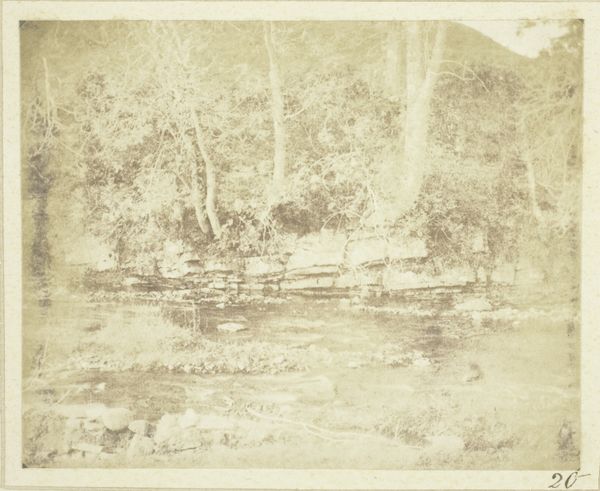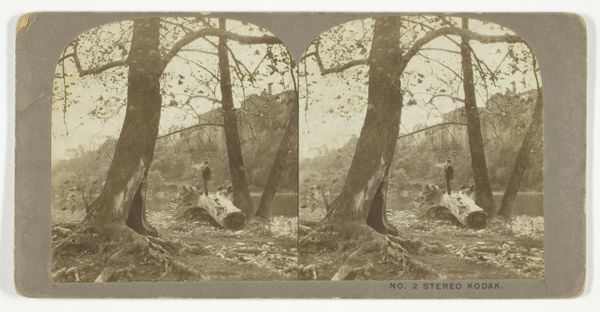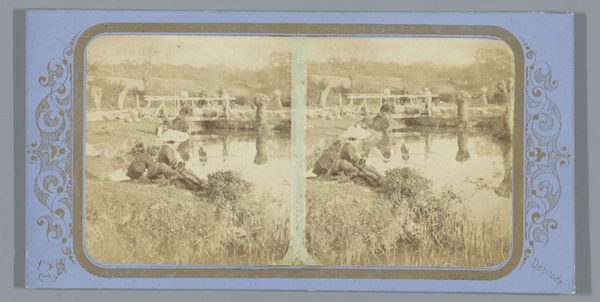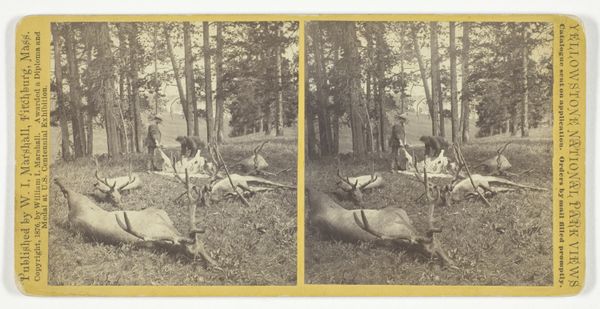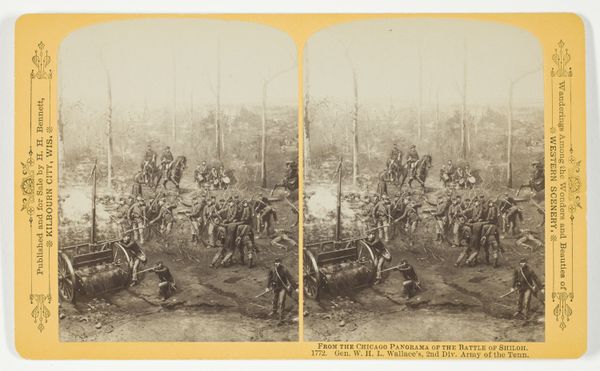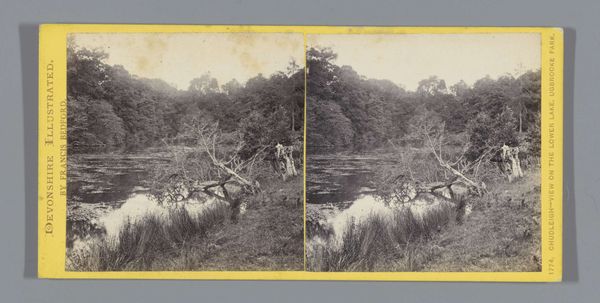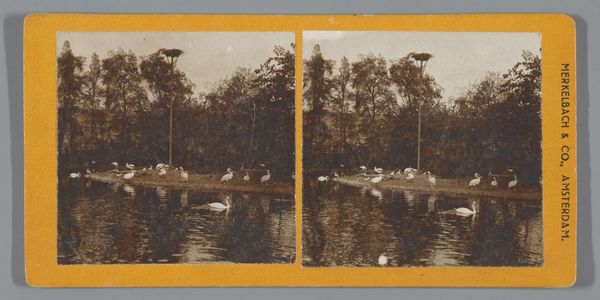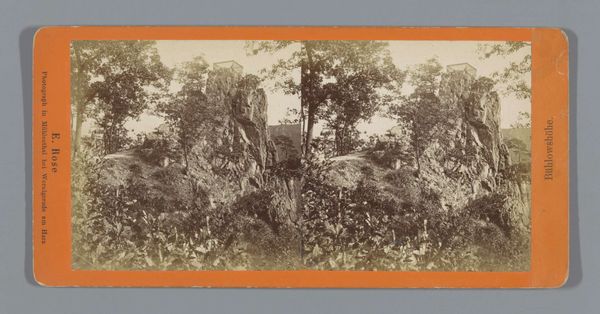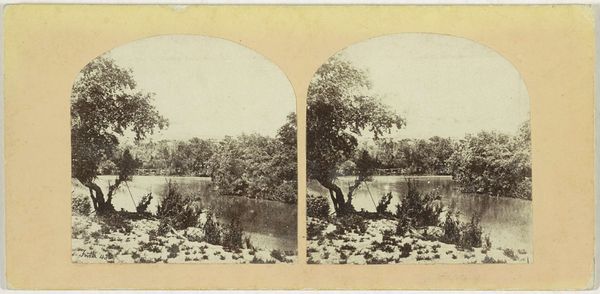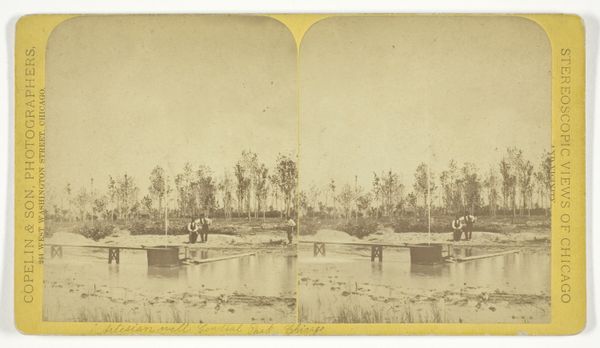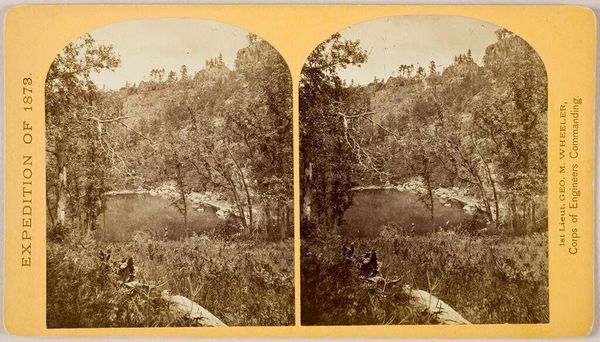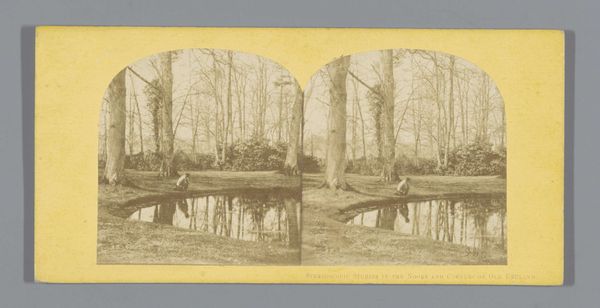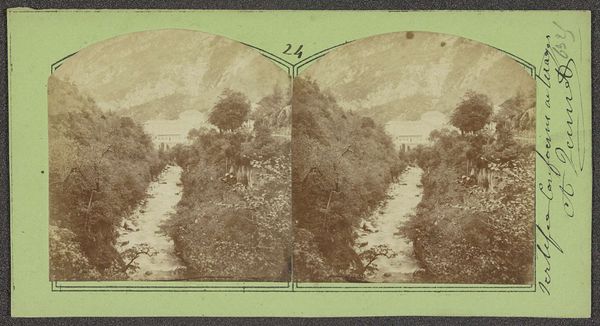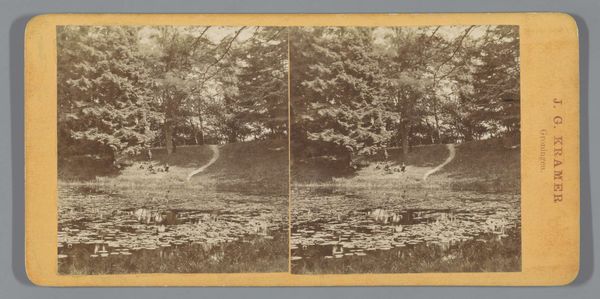
Yosemite Falls, Yosemite Valley, California c. late 19th century
0:00
0:00
print, photography
#
16_19th-century
# print
#
landscape
#
photography
#
hudson-river-school
#
men
#
united-states
Dimensions: 7.9 × 7.3 cm (left image); 7.9 × 7.7 cm (right image); 8.7 × 17.5 cm (card)
Copyright: Public Domain
This stereograph of Yosemite Falls, captured anonymously in the late 19th century, employs a photographic technique popular for bringing landscapes into the home. This method involves taking two nearly identical photographs and mounting them side-by-side, creating an illusion of depth when viewed through a stereoscope. The sepia tones and subtle details achieved through the wet collodion process highlight the grandeur of the American West. The photograph is mounted on card stock, a cheap material, allowing for mass production. The commercialization of photography democratized access to images and experiences previously reserved for the wealthy. The mass production of stereographs depended on the rise of industry, as well as the exploitation of natural resources to meet the growing demands of consumption and leisure. By examining the material components of this artwork, we gain a deeper understanding of its historical and cultural significance, revealing the complex connections between art, industry, and society.
Comments
No comments
Be the first to comment and join the conversation on the ultimate creative platform.
